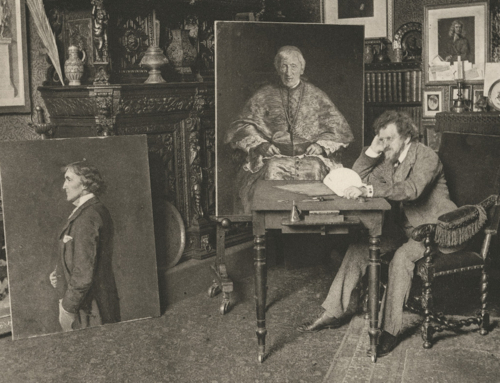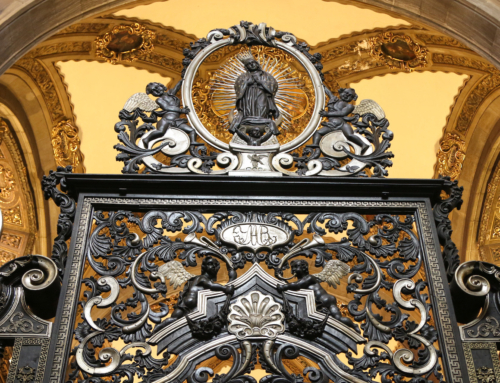We have almost made it halfway through the month of November, yet the odor of sanctity from All Saints Day remains potent. It was only a couple of weeks ago that we celebrated that cloud of witnesses and intercessors who continually cheer us on, ourselves the runners moving toward the heavenly city. While the cloud is thick with people from all states of life and backgrounds, one particular bunch stands out. It is those who wear the color red, a color that speaks eloquently like the blood of Christ. This holy bunch are the martyrs. It was their blood which, poured out like the blood of Christ, became the seed for a hearty harvest. What seeds do they seek to plant in our own hearts while we still live under that cloud? They hope for us to become rhetoricians and statesmen for the city of God, the city they now dwell in and the one we run towards. What is a rhetorician? What does a statesman do? Saint Augustine provides us with some understanding and inspiration.
From the writings of St. Augustine, a “theology of martyrdom” is clear. Specifically, a theology of the martyr as a rhetorician and statesman. Doctor Adam Ployd of Yale University argues, “Christ uses the martyrs as ideal rhetors and statesman of the city of God” (Augustine, Martyrdom, and Classical Rhetoric, p. 6).
In the days of the Roman Empire, a rhetorician was someone who had been trained to speak persuasively for the purpose of causing others to take action. It was typical for the emperor to use rhetoricians to speak on his behalf to motivate or sway citizens. For St. Augustine, the ideal Christian rhetorician was able to carry out a similar essential task. He wrote, “[They] are able to live in such a way that they not only gain a reward for themselves but also provide an example to others, and their form of life becomes like an abundance of eloquence” (On Christian Teaching, 4.29.61). Before the rhetorician even opens his mouth to speak, he should live according to the wisdom he proclaims. In this exact way, the martyrs declaim the most effective and persuasive speech. What could be more eloquent than their very blood poured out for the sake of the city of God? Each of us, too, lives as a rhetorician for the heavenly city, even if our blood is never poured out. There are countless ways each day we can give witness to the heavenly city, by boldly proclaiming our love for the truth found in Jesus Christ.
In addition to the rhetorician, the statesman was traditionally responsible for establishing right order in society. For the Christian statesman, his goal is “to rule in this world in a way that conforms as closely as possible to the virtues that govern the heavenly city,” most especially through love of God and neighbor (Ployd, p. 124). How, then, does the martyr act as a statesman? Essentially, he serves as an instrument of Christ by helping to establish the right order which comes from loving God and neighbor. When the martyr sheds his blood for the heavenly king, the minds and hearts of onlookers turn toward the heavenly city where God is loved first and foremost. In our own lives, in our own day, we bring about this right order by placing God first and encouraging others to do likewise. Like the traditional statesman, this right ordering both in our own hearts and in those around us establishes authentic peace.
Are you willing to serve as a rhetorician and statesman for the kingdom of God?
✠
Image: Lucas Cranach the Elder, The Martyrdom of Saint Barbara







